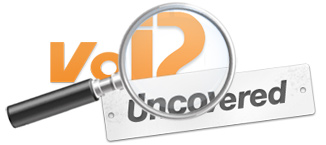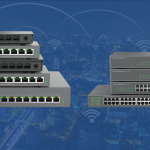This past week, VoIPon had a chance to interview 3CX’s CEO, Nick Galea to get answers to some of the questions which might cross the minds of business owners as they look to replace their traditional PBX with one of the many options available to them in next generation phone systems.
We asked Nick to elaborate on his answers in this podcast, but here is the summary.
VoIPon: Why should someone choose 3CX based system over the dominant open source software Asterisk?
Nick Galea (NG): 3CX should be the system of choice for any company running a Windows network and servers.
Asterisk is a Linux solution. It requires Linux knowledge and quite a lot of it too. If you are not familiar with Linux, then you will need to do a lot of training JUST to run a phone system. Choosing a Linux distribution with Asterisk pre-installed will not shield you from this either. A network administrator will:
- have to understand how the Linux distribution works,
- be able to apply security updates (which is critical),
- connect it to the Windows network,
- learn how to integrate it with Windows server applications, and
- learn how to monitor it.
This will require a lot of time and technical support. If you factor in the cost of technical support, the total cost of an Asterisk-based system is much higher than that of a 3CX Phone System.
- The 3CX interface is very easy to use and is pre-configured for use with all popular IP phones, VoIP Gateways, and VoIP providers.
- It comes as standard with a Skype gateway.
- You will need much less time to come to grips with replacing your old telephone system.
- Because 3CX is based on Windows, it’s also much easier to integrate with existing Windows server applications, such as Exchange server, Microsoft Outlook and so on.
All this functionality can be easily configured out of the box and this integration is what delivers real cost-benefits to a company.
In addition, Asterisk itself is focusing on its commercial distribution, Switchvox. Many of the new features are exclusive to this hardware-based platform, which is quite expensive.
VoIPon: What type of companies would benefit most from choosing a 3CX based solution?
NG: All companies that have networks and servers running Microsoft Windows can benefit from a 3CX-based solution. They can do away with the old phone system and save money on call costs, phone administration, and increase productivity.
VoIPon: Why a Windows-only system? Do you foresee a port to Linux in the product’s future?
NG: Companies that run Microsoft Windows don’t want to learn Linux just to run a phone system. They want an easy to use system that runs on Windows, one that they can easily manage with their existing Windows knowledge. Linux offers no advantages to them. We have no plans for a Linux based system, because there are plenty of solutions for Linux already.
VoIPon: What makes 3CX a cost-effective system? When you buy it, do you own it or is it a software as a service model in which you must renew each year to continue to use the product?
NG: 3CX is cost effective with many VoIP Gateways, including Patton, Grandstream, Sangoma, and also Berofix.
When you buy 3CX you own it for a good, and the cost is very reasonable. A small business edition, which will serve companies up to 30 extensions, will cost only 595 euros
VoIPon: What are some challenges in packaging and delivering a software-based PBX system to the enterprise?
NG: Actually, we have spent a lot of time removing the challenges of deploying an IP phone system by delivering a solution that runs on Microsoft Windows, a system that network administrators know and trust, and by automatically configuring VoIP Gateways, IP phones and VoIP providers, taking away a lot of the complexity of telephony.
VoIPon: Where do you see the future of telephony going? Are there any new features in the pipeline you can share? What might we expect from 3CX in the future?
NG: The future of PBX is software based and on Windows. Software-based because it’s the easiest way to deliver a maintainable system that can be easily be enhanced by new features. And with virtualization, there is absolutely no need for an appliance — just use the excess server power to run your PBX as a virtual machine. As a virtual machine, you get easy redundancy and it saves management, hardware costs and energy.
I see the market moving towards Windows because this is clearly the system of choice for most companies in the world.
Why would it be different for the PBX market?





